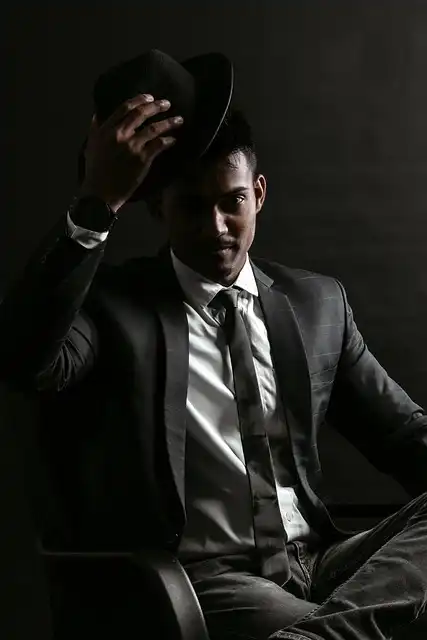‘Life’ Review: Turkey’s Oscar Submission Loses the Plot on Toxic Masculinity

At the start of Turkish auteur Zeki Demirkubuz’s long-awaited and frustratingly miscalculated “Life” — the filmmaker’s first movie in seven years, now serving as Turkey’s international feature submission to the Academy Awards —a young woman named Hicran flees the claws of an impending arranged marriage and goes into hiding.
Equally regrettable is the film’s narrative clumsiness, with a story that does not make its tiring runtime. To bring up another Turkish auteur with an affinity in the direction of longer and slower rhythms, Nuri Bilge Ceylan, as an example, knows just how to infuse every little minute with detaining elegance notes. In contrast, “Life” (sharing both cinematographers of Ceylan’s recent, masterful “Concerning Dry Grasses”) simply feels carelessly and insipidly sluggish. While the movie’s committed performances and genuine local color hold one’s attention, they do not sidetrack from the much deeper issues in “Life,” which doesn’t appear to have anything meaningful to claim on the toxic manliness epidemic.
The fiancé that Hicran flees from, Rıza (Burak Dakak), is principal amongst those qualified guys. In spite of having only seen Hicran one or two times, and against his wholesome grandpa’s (Osman Alkaş) demonstrations, Rıza really feels Hicran must have encountered him and described thoroughly why she doesn’t intend to marry him (as if being forced into an arranged marriage isn’t valid enough a factor). Therefore he leaves his stunning Black Sea area community behind, heading to Istanbul to try to find the lady who, in his mind, has actually done him dirty.
At the start of Turkish auteur Zeki Demirkubuz’s long-awaited and frustratingly overlooked “Life”– the filmmaker’s very first film in seven years, currently working as Turkey’s global feature submission to the Academy Awards– a young woman named Hicran takes off the claws of an upcoming arranged marital relationship and goes right into hiding.
We find out as much, not from Hicran initially, yet from the men in her orbit, as the similarity her embarrassed dad and distraught former fiancé decrease Hicran’s name in conversations and ponder the conditions bordering her mysterious trip. Swiftly, it feels sharp to keep hearing words “Hicran,” a common-enough female name in Turkey (where this doubter is from) that about equates as “wishing,” or rather, the intense pain one really feels out of hoping. That’s since it’s anything however an unintentional name selection here, as everyone in “Life” appears to be yearning for something or a person.
It would have been one thing if the manuscript that stipulates being as impartially empirical as possible in the direction of Hicran had the same attitude towards these toxically entitled guys– revealing us their actions unsparingly, and leaving the evident lessons for us to remove. But gradually, a troubling pattern arises in “Life”– like a villain origin story, the movie frequently heads out of its means to over-explain the root of male misbehaviors, coming hazardously near to claiming, “Guys have their reasons, also” with compassion. One does lose perseverance with such misjudged priorities, especially taking into consideration the current climate of Turkey. In a nation where ladies and their allies march underneath “Female murders are not arbitrary, they are political” banners, seeking an end to the patriarchal chaos, this inept position in “Life” really feels unpleasant.
For some time, we adhere to Rıza via inelegant cuts and unnecessarily drawn-out scenes, as his loved ones and friends living with their own set of misconceptions quickly go into the picture. And when he ultimately takes matters in his very own hands like a disrupted Travis Bickle would certainly, killing the criminal that has allegedly required Hicran right into sex work (despite the fact that there is no idea that Hicran minds living as a sex worker), he leaves the movie for some time, leaving the arena to other deeply unpleasant guys that believe they know what’s best for Hicran. One is Orhan (Cem Davran), an older and fairly liberal-minded educator Hicran agrees to marry to discover some relief from her conservative father, just to recognize that he is just another simple-minded, unconfident person that gets envious for no noticeable factor. The various other is Mehmet (Umut Kurt), Hicran’s ethically bankrupt papa who regularly defeats his partner and casually calls his bold child, “a slut.”
The difficulty is Demirkubuz nearly stubbornly demonstrates that he is a whole lot more thinking about (and also supportive towards) the unmet needs and growing pains of the males in Hicran’s course, although that they are, in numerous methods, the oppressors of Hicran and many other ladies like her, in a culture where a considerable part of the populace still keeps patriarchal values. While Hicran is progressively disclosed to be the major protagonist of the tale, Demirkubuz leaves her desires and dreams curiously obscure, often putting them on the back-burner. In that, when Hicran (a perceptive and quietly commanding Miray Daner) goes into the film in flesh and blood, she continues to be mainly silent, quietly irritated, and commonly inaudibly dissatisfied. Her silence neither really feels like a simmering disobedience, nor straight-out submissiveness. Essentially, she just roams around her very own story– all three hours and thirteen minutes of it– like an afterthought, when a group of guys who have, straight and indirectly, turned her life into heck do all the talking about their fragile vanities.
We learn as much, not from Hicran at initially, yet from the men in her orbit, as the likes of her humiliated daddy and troubled previous fiancé decline Hicran’s name in discussions and ponder the conditions surrounding her mystical trip. The difficulty is Demirkubuz nearly stubbornly demonstrates that he is a whole lot extra interested in (and even supportive towards) the unmet demands and growing aches of the males in Hicran’s path, regardless of the truth that they are, in various methods, the oppressors of Hicran and plenty of various other women like her, in a society where a considerable part of the population still holds onto patriarchal values. Regardless of having only seen Hicran as soon as or two times, and against his wholesome grandpa’s (Osman Alkaş) objections, Rıza feels Hicran should have faced him and described in detail why she does not desire to marry him (as if being required into a prepared marital relationship isn’t valid sufficient a reason). And when he finally takes matters in his own hands like a disturbed Travis Bickle would, murdering the criminal that has actually supposedly required Hicran into sex work (also though there is no pointer that Hicran minds living as a sex employee), he exits the film for a while, leaving the arena to various other deeply undesirable men that believe they know what’s finest for Hicran. To give away a required spoiler, Hicran, in the end, gladly submits to her intended rescuer Rıza– a gun-toting avenger who, for all we recognize, could have murdered Hicran rather of her pander.
“Life” isn’t the very first time Demirkubuz has actually illustrated self-destructively compulsive behavior in males. (Actually “Fate” (2006 ), one of his earlier films on the topic, makes a quick appearance on a TV screen in “Life.”) But this might be the first time such habits unequivocally wins in the verdict of a Demirkubuz image. To give away a needed spoiler, Hicran, in the long run, gladly submits to her expected rescuer Rıza– a gun-toting avenger that, for all we know, might have murdered Hicran instead of her pander. As “Life” reaches its finale, we see the pair unambiguously happy, and Hicran, gladly pregnant. Has she grown tired of battling and just sent to her unpreventable destiny out of ease? Or did she truly succumb to Rıza? If it’s the former, the film seems virtually as well pleased with the grating result. The recommendation that you can discover love with a stalker that murders out of passion feels all the more disturbing if it’s the last.
1 Academy Awards2 auteur Zeki Demirkubuz
3 named Hicran flees
« ‘Happy Gilmore’ Director Returning for Role in Netflix Sequel (Exclusive)I Want To Talk (2024) Movie Review: Resilience of the Human Spirit Expressed with Humorous, Feathery Touches »
